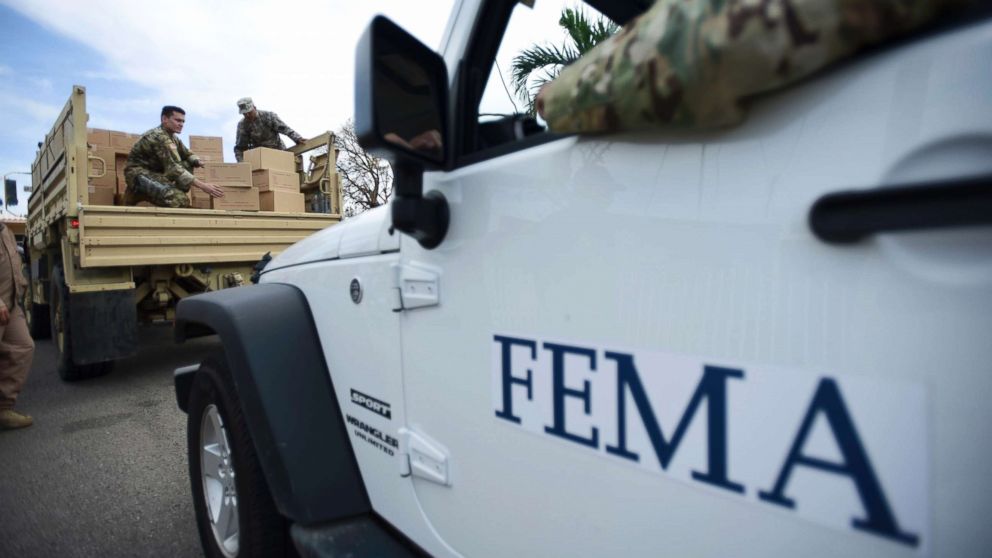FEMA staffers could be billed for overtime after hurricanes
Many are still pulling 12-hour days in miserable conditions.

— -- Over the past three months, FEMA Disaster Operations Director Marty Bahamonde has been home just once, for a two-week stretch.
He's spent the other dozen weeks amidst calamity.
Bahamonde deployed to Texas on Aug. 24, as Hurricane Harvey pummeled Houston. Six weeks later, he flew straight to Puerto Rico, the island struggling to cope with widespread devastation following back-to-back hurricanes, Irma and then Maria.
With much of the commonwealth still without power, he slept on a cot alongside hundreds of other workers inside a convention center, taking cold showers and bunching up spare clothing to use as a pillow.
Now, FEMA says he and hundreds of other FEMA employees who pulled double-digit days during this year's massive storms may be forced to pay back some of their overtime pay.
Under federal law, government staffer's annual earnings are capped — and following a record-breaking hurricane season, "several hundred" staffers have butted up against their maximums, FEMA confirms to ABC News.
“Due to the extended work hours involved in supporting disaster recovery and response efforts for multiple storms, the annual cap could affect as many as several hundred employees. The potentially affected employees are all exempt from the federal Fair Labor Standards Act and are generally employees towards the upper end of the agency’s pay scale,” FEMA’s spokesperson told ABC News in an emailed statement.
Unless Congress passes an emergency waiver, FEMA's human resources told employees, they'll be required to reimburse FEMA for excess overtime, either via payroll deductions or one lump sum.
Though they've since moved to hotels, the team in Puerto Rico has been working "12 hours a day, seven days a week" for months, Bahamonde told ABC News. Faced with that devastation, "you can't walk away."
Faced with its longest continuous activation period to date, the agency's staff is "tapped out," Administrator Brock Long testified before Congress last month.
But when the exhausted staff in Puerto Rico heard they might not be compensated for their long hours, they discussed it briefly -- most have families back home and bills to pay -- then doubled their focus on the mission, Bahamonde said.
The entire team "showed up to work and kept working, because that's what you do," he told ABC News. "That's what you do when people need your help."




